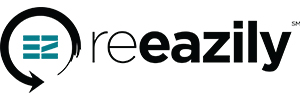Dotloop’s Most Popular Accounting and Backend Integrations
Forecast Pending Commissions, View Future Business and Get Paid Faster
In this final installment of a 3-part series (part 1 and part 2), dotloop’s leading accounting and backend integration partners detail how syncing to their systems can help real estate brokers and agents manage even the most complicated commission structures, see what business is waiting down the pipeline and even recruit agents smarter using real-time market analytics.
What the Integration Offers
While real estate professionals have many choices in accounting software, QuickBooks Online remains one of the most popular apps used by brokers and agents.
Dotloop’s integration partners at API Nation, San Diego, CA, released an automated sync from dotloop to QuickBooks Online to help autofill income commissions, splits and deposits. This automation syncs the financials directly into QuickBooks when a loop is closed, thereby simplifying the end-of-year reporting.
Points of Differentiation
API Nation’s syncing software allows brokers and agents to easily leverage QuickBooks Online to automate agent commissions with dotloop and to create fast and easy 1099 forms.
Here’s how it works: API Nation’s sync tracks entries and edits from the loop to QuickBooks Online in real-time. The sync can handle all transaction types of “sold,” “leased” or “done.” When your transaction is completed, the system already has gross commissions ready.
As the transaction progresses, the workflow updates when a deposit is created and synced in Quickbooks, making any further updates to closing date, loop name or commissions amount in dotloop. If, for example, an amount is entered in the earnest money field, it will sync to Quickbooks as a deposit. The user can select the Quickbooks account where the deposit is entered: title, escrow or trust, for instance.
How to Integrate
Those interested in integrating Quickbooks Online with dotloop can click here for a 1-week free trial (from $10/mo.). As a next step, click on “Connect dotloop” and log on to the dotloop account. Click “approve” once alerted and authorized to connect API Nation to the dotloop account.
Next, click on “Connect Quickbooks Online” and authorize the account or choose an existing connection.
Lastly, review settings and select the correct accounts. Click “Subscribe and Sync” to start. Note: There’s a 15-minute wait time for the first sync to run. Here’s a quick video with a clear walkthrough of the setup.
What the Integration Offers
For brokers and agents still using spreadsheets to calculate their financials, Boston-based AccountTech offers a much easier solution. Once a transaction closes in dotloop, a single click in the integrated accounting app triggers a full automation of commission and financial data, a direct deposit of the money in the agent’s bank account and a commission statement with the year-to-date accounting history.
“Real estate brokers and agents can enter data only once, and then AccountTech aggregates the data and sends it to the franchise,” says Mark Blagden, president of the once former accounting firm, which began as an outsource to real estate clients.
Today, the popular app calculates and pays transaction-related bills, including broker fees, signs, ads and MLS dues. In dotloop, admins can view and verify net commissions calculated according to the commission plan before approving the expenditures to process in AccountTech.

There is no accounting plan that AccountTech cannot handle. We’ve been doing this for 28 years.
For example, the app can handle complex setups, such as co-op sales that graduate on an alternating scale with year-to-date agent production, up to a fixed cap amount per year. Large brokerages with multiple legal entities inherited from mergers or acquisitions can also use the single integrated software solution to view separate or combined financial balance sheets.
“AccountTech lets you maintain an unlimited number of distinct companies with separate financial balance sheets for each one, all with one software,” says Blagden.
Once the calculations have been approved, the money is deposited into the agents’ accounts and the associated expenditures can be paid directly via the app.
Points of Differentiation
While AccountTech’s software is principally used for back-office functions, the app also features front-end tools, affording agents and managers web-based reporting that lets them view a 1099 or see income by pending sales, bills owed, personal production to goal and by historical comparison, as well as payments based on upcoming closings.
“Most software companies come with a canned set of reports,” says Blagden. “Ours is reengineered according to how you deliver reports. We have over 100 foundational reports that are all customizable. You can remove or add columns and use hundreds of filters to get exactly the reports that you care about most.”
Following a software upgrade in late 2018, AccountTech now runs 800% faster and features a more expansive flexible engine that integrates with more software system over the prior application, Blagden notes. The app’s API allows real estate brokers to extract data from the AccountTech platform to feed their own dashboards, update other programs or otherwise inform internal reporting.
In addition, the upgraded software offers more granular security, a complete audit log documenting all accounting data activity, and a complete letter and email system for invoicing and sending commission statements to agents and title companies, requests for more property information and more.
How to Integrate
Customers can activate the dotloop integration inside their AccountTech account or via the dotloop site.
Log in to your dotloop account with your credentials and click “Sign In” to continue. Learn more about the AccountTech integration.
What the Integration Offers
At a minimum, a good backend accounting system needs to automate agent and broker fees and simplify the payment process. It should be seamless and able to move the transaction forward without any data reentry needed, says Tracy Simmons, Chief Revenue Officer and Partner of Vancouver, B.C., Canada-based Loft47.
That’s why a strong integration is essential to the processing of real estate transaction financials, which are constantly in flux.

We are all about the integration, working with other products that are amazing at what they do rather than try and build everything ourselves.
The Loft47 and dotloop integration enables real estate agents and brokers to automate commission management as well as sync documentation and checklists in dotloop to Loft47 automatically.
Once the commission splits, agent deductions, deal fees and other calculations have been set, Loft47 fully automates the accounting in dotloop and the backend software.
Commission plans can get complex, and it’s not uncommon for an agent’s commission plan to begin at 70/30 up to $50,000 growth commission, transition to 80/20 up to $100,000 growth commission and then change again to 90/10 for the remainder of the year before rolling back to 70/30 on the agent’s anniversary date. Many of these fees are calculated after other fees, such as franchise, admin or TC and mentor fees. Loft47 offers the ability to insert complex dependencies into the fee structures to remove the headache.
This automated program appropriates the splits based on any formula’s calculations and then direct-deposits the payment to the agent into their bank account.
“No one has to key in that data again after the first time it’s entered in dotloop,” says Simmons.
Points of Differentiation
Loft47’s new API enables the cloud-based platform to import and resync deals seamlessly. If something in the transaction changes, the user can go into the Loft47 program and refresh that deal with a click. Admins and brokers maintain control over the information, so brokers can view the activity history of any transaction, while agents see only the data pertaining to their deals.
By deeply integrating with dotloop and Xero.com for the accountant component, Loft47 is able to deliver a full accounting picture with details around the entire deal rather than just the net payable.

For instance, we capture top-line growth commission and any income items to the brokerage, such as accounts receivable if the agent owes the brokerage money, as well as the net payable to the agent. So the program makes all the proper journal entries and creates a full accounting for compliance.
A secondary API also provides agents with the option to fully automate their accounting and receive an updated, real-time profit and loss sheet, complete with full accounting details like broker fees. This comprehensive, transparent accounting picture gives agents a look at their current financials as well as their projected income for pending deals.
Just like brokers, agents can directly access and “self-serve ” their 1099s and prepare their Schedule Cs for tax compliance.
How to Integrate
The Loft47 and dotloop integration is a simple process that takes under two minutes. Once deals are set up in dotloop with an “under contract,” “sold” or “active listing” status, users can click the “Create Deal” button in Loft47 to bring the deal over from dotloop and click “Reload” at any time to update specific or all deals.
For a complete demo on how the integration works, click here.
What the Integration Offers
A key hallmark of BrokerSumo, Draper, UT, is its built-in payment solution. Once commission splits calculate, the agent is paid directly from the BrokerSumo backend platform.

All that automation of splits and agent information really breaks out granular reporting and specifics, such as what agents were paid, deductions taken, fees paid to brokers, franchise fees and referral fees, into data that can be consumed very easily.
Once the agent has created a loop in dotloop, the projected closing data becomes part of the pipeline reporting data in BrokerSumo, which then enables agents and brokers to view projected commissions in three-, six-month or longer increments.
Additionally, brokers can view listings of an entire office and project collective revenues and commission disbursements by estimated closing dates. They can set up recurring billing for monthly, quarterly or annual fees and sync the data with QuickBooks.
Points of Differentiation
In addition to providing full automation of commission split processing, the platform offers brokers the ability to use the platform’s agent onboarding features for adding agents, signing documents electronically, uploading licensing and car insurance information, and more.
“BrokerSumo serves as a centralized portal for your agent information as well as commission data,” says Shoenig.
The customization of the platform for commission processing as well as payouts is noteworthy. “There’s no one-size-fits-all in real estate,” says Shoenig. “It’s a constant evolution.”
BrokerSumo can tailor to teams with varying preset commission splits per agent and comes equipped with a PDF version that admins can send to title companies for payments and closings. Whether payments are made at the closing table or via paper checks, the system can process all forms and deposit money directly into the bank within two days.
How to Integrate
To activate the BrokerSumo integration with dotloop, go to Settings > Integrations and click on the dotloop integration button. A prompt allows the user to select from company/admin account sync or an agent account sync.
What the Integration Offers
Long before Jesse Garcia co-founded the Sacramento, CA-based accounting and back-office management platform, he saw firsthand how mistakes must be costing brokers and agents tens or even hundreds of thousands of dollars due to the lack of proper supporting technology.
Today, Zipi has removed not only the sting from commission management but has also integrated with dotloop to allow real estate brokers, agents and teams to manage transactions, payouts, forecasting and accounting.

Brokers are under more internal and external pressure than ever. We have embarked on a mission to exceed the status quo and provide unprecedented value to brokers, agents and consumers, all while providing the entire platform at no cost to brokerages. The industry was in dire need of modern technology that streamlined accounting and back-office processes, while empowering Realtors® to showcase their hard work and provide transparent value to the consumer.
Points of Differentiation
Zipi is a free real estate accounting and back-office management platform with features designed to service the entire real estate lifecycle, including transaction management and reporting through dotloop; performance dashboards, income forecasting and expense reporting; simple to complex commission management and ACH payouts; and streamlined disbursement process, accounting and 1099 forms.
How to Integrate
The native Zipi integration with dotloop allows users to bidirectionally sync transaction and financial data to reduce duplicate data entry and provide deeper visibility into forecasted business.
To integrate, users enable the dotloop integration within Zipi in a few simple steps. Users can customize their setup by choosing a default profile and template to use when syncing transactions. Once you’ve completed the setup process, you can specify which transactions you want to sync.
What the Integration Offers
Downstream of the transaction process is where Elgin, IL-based reeazily comes into play with complete commission management, splits, escrow management, payout calculation and structured accounting for brokers.
reeazily’s main product, Broker EZ, offers a Stats EZ module that, in addition to providing push reporting for KPIs and performance, gives brokers a market analytics module to recruit agents with full competitive intelligence.
While reeazily licenses through the brokerage, they also provide Agent EZ, a self-service portal for agents to check on pending payouts and more. An electronic payout feature lets the agent print his or her own check or set up direct-deposit within 24 to 48 hours.

A big focus for us is on making the system easy to use, repeatable and trainable.
Agents and brokers can search by MLS, property name, property address and more. “We’ll also show you other contracts, which is convenient because in large brokerages, you may be working both sides and can connect them with this information,” says Reagan.
Points of Differentiation
“One of our specialties is that we come from a background in franchising, so we know this data really well and have designed an advanced plan calculator with all types of caps, fees, splits based on volume or GCI,” says Reagan.
After a loop has been created in dotloop, the user can add a co-op brokerage as well as import the title company, mortgage company and other third-party providers.
“Many brokers like to track third-party providers, so they can tie them back to productivity reports and determine the size of the deals associated with those services,” says Reagan.
Throughout the process, the reeazily app facilitates deep linking via document management. “One of the key things admins like is they can click one button, and it takes them to the Task list or Document section of dotloop and lets them check to make sure they have disclosure paperwork for compliance. That helps them save time without needing to search for the information. It’s one click away in dotloop,” says Reagan.
The cloud-based app services multi-office or multi-location brokerages with a wide spectrum of permissions, too. “We designed it with global permissions, so a broker/owner who owns multiple locations can set up global permission or have finite permissions where it’s isolated to individual offices and a whole layer of permissions associated within those allowances. At the end of the day, it rolls back up to the company so you can see everything across your organization.”
How to Integrate
For offices with active dotloop accounts, users can simply select the “Settings” dropdown from the left side menu in Broker EZ, select the “dotloop link” and then “Connect to dotloop.” A popup will appear, asking to allow reeazily access to the dotloop account. Select “approve.”
Users can also easily link an existing loop to a live Broker EZ contract by searching via MLS number, property address or agent name, or they can create a new loop directly in Broker EZ.
Learn more about the benefits and how to integrate dotloop and reeazily.









